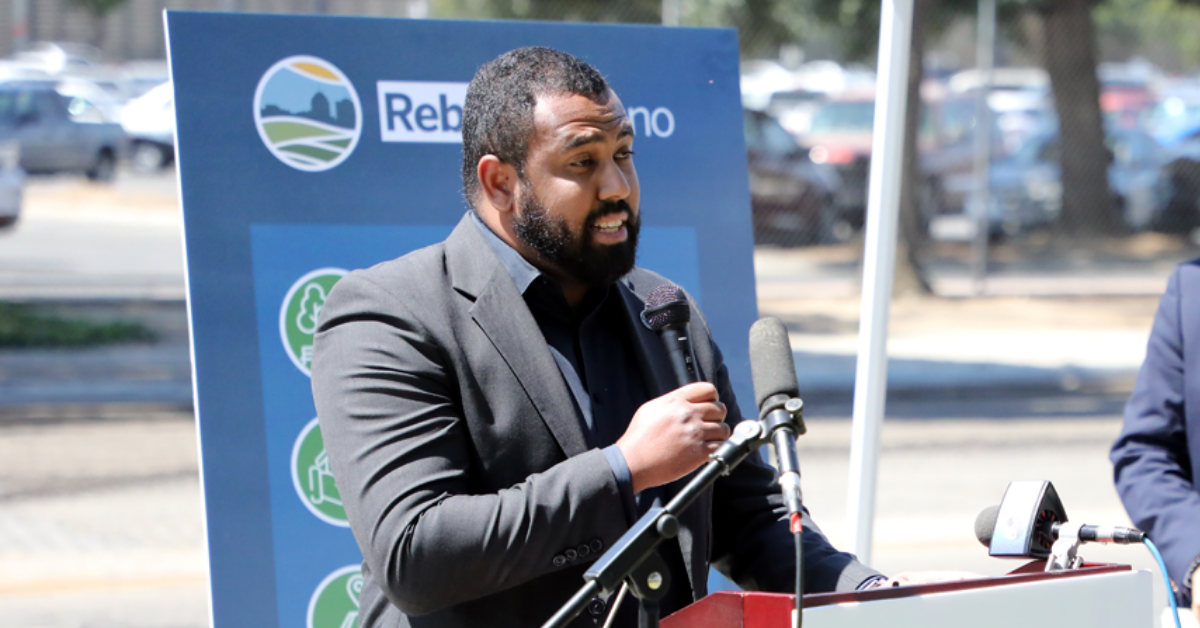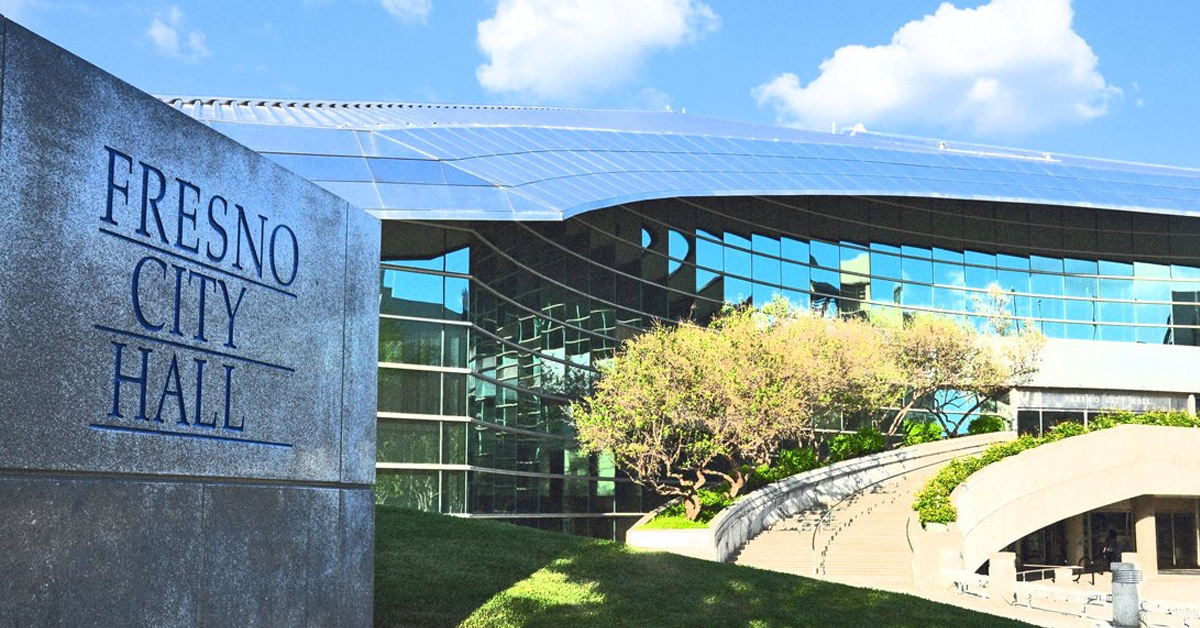The Bird Scooters-Fresno City Hall affair is another example of one of municipal government’s biggest safety challenges: The regulation of transportation in a fast-changing high-tech world.
To review, City Hall earlier this month announced that it had issued a cease-and-desist letter to Bird Rides Inc., telling the Santa Monica-based company to remove all of its scooters from the city until the two sides can strike a deal concerning rules of operation.
If I understand correctly, Bird’s business model begins with electric scooters parked on public rights-of-way. A customer downloads an app that makes the scooter operable. The customer pays a small fee to download the app and a small per-minute operating fee. Customer No. 1 goes from Point A to Point B in the urban environment while obeying all applicable laws (helmet, at least 18 years of age, valid driver’s license, riding in proper lane). Customer No. 1 parks the scooter. Customer No. 2 comes along and repeats the process, if not the preceding route.
The company’s Website sums it up like this: “Electric Vehicle Sharing – Find a Bird Nearby – Ride Anywhere – $1 to Start.”
I came across several Bird scooters in August while walking along Barstow Avenue toward Fresno State. The scooters were parked on the sidewalk on the south edge of Hoover High School. I had never heard of Bird scooters, but I immediately sensed the company’s essential game plan.
City Hall issued its cease-and-desist order on Aug. 29.
“If you want to use the public right-of-way, you have to operate in the public interest,” says Assistant City Manager Jim Schaad in a written statement.
Added Mayor Lee Brand in the statement: “We want to be business friendly – but friendliness goes both ways. We will continue to embrace different forms of transportation, but not at the expense of safety or public process. We appreciate Bird’s eagerness to establish themselves here before their competitors do, but it’s not fair to the thousands of businesses in Fresno who play by the rules, received the proper permits and licenses and are operating legally.”
Mark Standriff, City Hall’s communications director, told me on Thursday that talks between city and Bird officials continue.
Travis VanderZanden, Bird’s founder and chief executive, summed up the company’s vision on its Website. Bird has issued what it calls its “Save Our Sidewalks” pledge. It says in part:
“We’re witnessing the biggest revolution in transportation since the dawn of the Jet Age. From car ride-sharing to bike-sharing to autonomous and electric vehicles of all kinds, an explosion of innovation stands to transform the cities in which we live, improve the environment, and help us get from point A to point B.
“The sharing of e-bikes, e-scooters, and other short-range electric vehicles to solve the ‘last-mile’ problem is an important part of this transformation. We have an unprecedented opportunity to reduce car trips – especially the roughly 40 percent of trips under two miles – thereby reducing traffic, congestion and greenhouse gas emissions.”
A few days after I first saw the parked Bird scooters, I was again walking along Barstow Avenue near Hoover High. This time I was headed west, away from Fresno State. Two kids on Bird scooters went zipping by me. They looked to be in their early to mid-teens. They weren’t wearing helmets. They zig-zagged around the Barstow-First Street area. They clearly were having fun.
My point here isn’t to knock Bird and its business model. My point is look at VanderZanden’s important point – we’re all in the midst of “the biggest revolution in transportation since the dawn of the Jet Age” – from a regulatory standpoint. Much of this revolution is happening on city streets. How does City Hall get its arms around it from a policy standpoint? Should City Hall even try?
Fresno’s streets can be dangerous. The Police Department’s 2017 report says 52 people lost their lives in traffic collisions that year.
“Of the 52 fatalities, 25 of those were pedestrians,” the report says. “Our spike in pedestrian deaths began in 2011 and we are not alone. Nationally, pedestrian deaths have been on the rise. Despite our ongoing efforts to educate and enforce pedestrian violations, keeping pedestrians out of the road has been challenging. In 2017, we issued 1,431 pedestrian related traffic citations, a 105% increase from 2016….While analyzing our fatalities, it was determined that a high number of our pedestrians were struggling with issues of homelessness and often walking around at night.”
The city’s Active Transportation Plan wants people to get out of their cars and use more environmentally friendly ways to go places locally. According to the ATP, 127 pedestrian collisions in 2014 resulted in serious injury; that number was 120 in 2015. There were 91 serious bicyclist collision injuries in 2014 and 85 in 2015.
Police Chief Jerry Dyer has made traffic safety a priority. According to FPD’s 2017 report, the Chief in October of that year returned 11 officers to the Traffic Bureau.
The 2017 report says: “The Traffic Bureau is and always will be relentless in our pursuit of zero deaths on our roadways.”
At the same time, inexpensive do-it-yourself innovation in motorized transportation never stops. The same is true (at least from the innovation side) for corporate-inspired transportation systems.
For example, reporter Dan Neil in the Sept. 12 online edition of The Wall Street Journal writes about his recent experience behind the wheel of a single-seat flying car. He flew what the company in question (Kitty Hawk) is calling the Kitty Hawk Flyer.
Neil writes: “Aeromobiles – aeros for short. That’s what I’ve decided to call the proliferating class of machines billed as flying cars, which is a lazy misnomer and misleading. Nobody is seriously proposing fully streetable automobies that also fly, unless they mean to launch a Cadillac Escalade off a cliff….
“Also known as vertical-takeoff-and-landing vehicles, or VTOLs, these machines are poised to profoundly change our world, just as soon as the Federal Aviation Administration figures out what to call them, how to regulate them and where they should be allowed to fly.”
I encourage to you read Neil’s article – “The First Flying-Car Review.” Neil sums up his experience with two key sentences:
“You would have to be very dull not to see the potential of aeromobility.”
“Really, aeros already work like a charm.”
To close the circle, whether we’re talking about the Bird scooter business model or the Kitty Hawk Flyer business model, the disruptive revolution in personal transportation is upon us. It will only gain speed.
And it’s always City Hall, be it in Fresno or elsewhere, that is at the center of the regulatory action. And where does City Hall look when it needs help?
The Police Department, of course.










Fresno’s position from Assistant City Manager Jim Schaad: “If you want to use the public right-of-way, you have to operate in the public interest,” This raises a question: Does the City of Fresno have exclusive authoritative rights over public rights-of-ways? Does the city have ability to dictate to a company or organization as to what that company defines as “public interest”?
The mayor says: “We want to be business friendly”: “cease-and-desist”. Clearly, Fresno has shown interest in talking by its established procedure for the City of Fresno to pay dozens of consultants hundreds of thousands of dollars each to explore traditional transportation.
How about a class action law suit against the City of Fresno for removing a convenient mode of transportation opportunity by the Citizens of Fresno.
Transportation alternatives that the city does not have to pay for are clearly not allowed. Fresno does not want convenient transportation alternatives provided by Bird Rides Inc. Perhaps Fresno’s position is based on discriminatory policy which excludes the geriatric generation. It’s target market is for a youthful generation. For a dollar those people should take a bus. The bus won’t take them where they need to go.
As the statement from Bird’s CEO, Bird transportation becomes a solution to the ‘last mile’ problem. Since Fresno does not have a functioning transit system and the only way to get from point A to point B in Fresno is to drive a car; then perhaps Fresno indeed is far below the need for a ‘last mile’ solution.